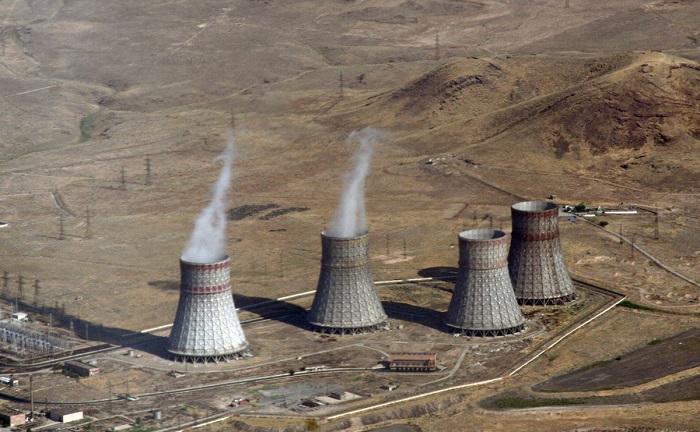The NPP was built in six years in the city of Metsamor and began to operate in 1976. After the devastating earthquake of 1988 in the town of Spitak, it was closed; but in 1995, despite numerous international protests, the Armenian government renewed the operation of the NPP – moreover, the second reactor was launched.
Last fall, the license for the exploitation of the plant expired, but the Armenian government made the decision to prolong the date of exploitation of the plant for additional 10 years.
During all these years, international ecologists and scientists have been noting that the seismic activity of the area makes the operation of the plant in Metsamor an extremely dangerous enterprise even if a reactor of new sample is constructed. They urge that due to its deplorable state, the Armenian NPP could repeat the fate of the Chernobyl NPP in Ukraine. The possible tragedy will jeopardize the life of people and environmental state of the region, and its consequences will be also felt in Europe and in the Middle East.
The need to close down the plant in Metsamor has been also noted by numerous media publications. Last week, the Washington Post has published an article describing the threats of the Armenian NPP.
“The plant has long been a cause for concern for at least two reasons: It was built without containment vessels, and it sits in a seismic zone… In 2011, National Geographic even suggested that it might be the world’s most dangerous nuclear plant,” wrote the author of the article Stefano Morelli.
The author noted that despite the risks, the power plant is still open, and people still live in the town created for the plant’s workers.
“Photographer Stefano Morelli visited the town in January to document its way of life. What he found was 10,000 people (1,000 who still work at the plant) living in a town of old Soviet buildings, caught “in suspension between doubts and fears, between poverty and survival, between life and death,” reads the article.
The French newspaper Le Monde diplomatique has also published an article describing the threats and possible consequences of the Metsamor NPP.
The article entitled “Metsamor, a potential Chernobyl” informs that the Metsamor NPP was built during the time of the Soviet Union and on a highly seismic zone.
“This plant continues to pose a considerable risk for the whole of Europe because of its age and its situation in a region with strong seismic activity,” wrote a European Union envoy later.
The organization proposed an aid of 100 million euros for the closure of the plant, the newspaper reminded, adding that Armenia refused the aid and continues to operate the NPP, risking life of millions of people.
The whole world tells Armenia that it is high time for the closure of the Metsamor NPP, but the country’s government, as always, tries to postpone the process, thus forcing the people of the whole region to live in a constant concern about their lives.
More about: #Metsamor-NPP
















































